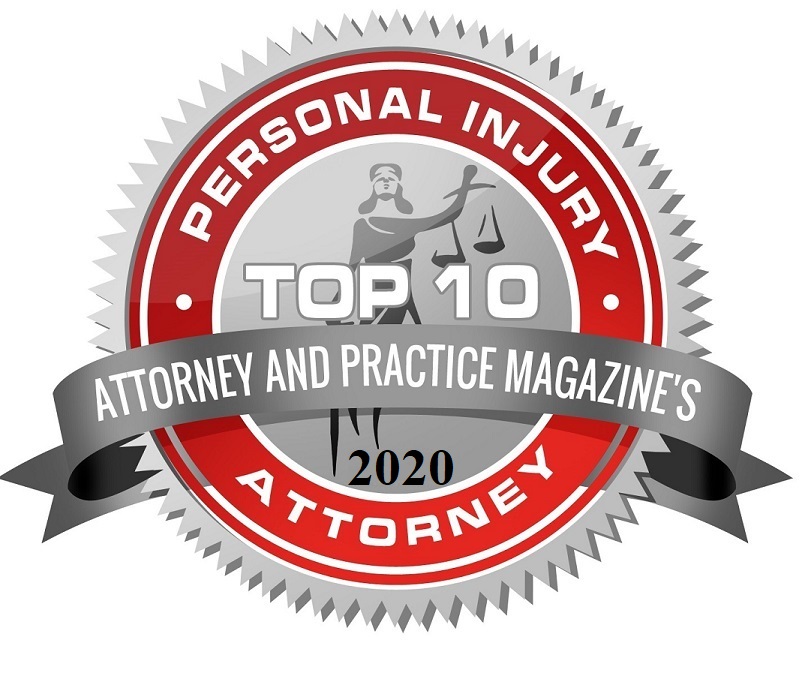Motorcycle accidents are among the most dangerous types of collisions on Florida roads, often resulting in severe injuries or even fatalities. Left-turn motorcycle accidents, in particular, are a common and deadly occurrence. In these scenarios, a vehicle makes a left turn at an intersection or into a driveway, often colliding with an oncoming motorcycle. The severity of these accidents and the potential for catastrophic injuries makes it essential to determine who is at fault. This is where the concept of negligence becomes critical. Understanding how to prove negligence in left-turn motorcycle accidents is crucial for any injured party seeking compensation. This discussion will delve into the key aspects of proving negligence in these types of accidents, focusing on frequently asked questions that arise in the state of Florida.






Understanding the Concept of Negligence in Florida
Negligence is a legal concept that is central to personal injury cases, including motorcycle accidents. In Florida, negligence refers to the failure to act with reasonable care, leading to harm or injury to another person. To succeed in a personal injury claim, the injured party must prove that the other party was negligent and that this negligence caused the accident. In the context of a left-turn motorcycle accident, this often involves showing that the driver who made the left turn did not exercise reasonable care, resulting in the collision. Florida law requires all drivers to exercise a duty of care to others on the road, including motorcyclists. When a driver fails to do so, they may be held liable for any resulting injuries or damages.
Why Are Left-Turn Motorcycle Accidents So Common in Florida?
Left-turn motorcycle accidents are particularly common due to the inherent dangers of the maneuver. When a vehicle makes a left turn, it must cross oncoming traffic. Motorcycles, being smaller and less visible than cars, are often overlooked by drivers making left turns. This leads to a situation where the turning vehicle may fail to yield the right of way to the motorcycle, resulting in a collision. Florida’s busy intersections and the high volume of traffic contribute to the frequency of these accidents. Additionally, some drivers may misjudge the speed of an oncoming motorcycle, believing they have enough time to complete the turn when they do not. This miscalculation can have devastating consequences for the motorcyclist.
What Are the Legal Responsibilities of Drivers Making Left Turns?
In Florida, drivers who make left turns have a legal obligation to yield the right of way to oncoming traffic. This includes not only other cars but also motorcycles, bicycles, and pedestrians. The law is clear that a driver must not proceed with a left turn unless they can do so safely, without causing an accident. If a driver fails to yield and a collision occurs, they are typically presumed to be at fault. However, this presumption can be challenged if there is evidence that the motorcyclist was speeding, ran a red light, or otherwise contributed to the accident. Proving fault in these cases requires a thorough investigation of the accident scene, witness statements, and often, testimony.
How Is Fault Determined in a Left-Turn Motorcycle Accident?
Determining fault in a left-turn motorcycle accident involves a detailed examination of the circumstances surrounding the crash. Florida follows a comparative negligence rule, meaning that fault can be shared between the parties involved. This rule allows an injured motorcyclist to recover damages even if they are partially at fault for the accident. However, their compensation will be reduced by their percentage of fault. For example, if a motorcyclist is found to be 20% at fault and the other driver 80% at fault, the motorcyclist’s compensation will be reduced by 20%. Key factors in determining fault include whether the driver making the left turn had a clear view of oncoming traffic, whether they signaled their intention to turn, and whether the motorcyclist was obeying traffic laws.
What Evidence Is Needed to Prove Negligence in a Left-Turn Motorcycle Accident?
Proving negligence in a left-turn motorcycle accident requires gathering and presenting evidence that demonstrates the other driver’s failure to exercise reasonable care. This evidence can take many forms, including police reports, witness statements, traffic camera footage, and accident scene photographs. In some cases, accident reconstruction specialists may be brought in to provide a detailed analysis of how the collision occurred. The police report is often a critical piece of evidence, as it may include the officer’s assessment of who was at fault. However, police reports are not always definitive, and other evidence may be needed to establish liability. Medical records documenting the injuries sustained by the motorcyclist can also be important, as they provide a clear link between the accident and the harm suffered.
How Do Insurance Companies Handle Left-Turn Motorcycle Accident Claims?
Insurance companies play a significant role in the aftermath of a left-turn motorcycle accident. They are often the ones who will ultimately pay for damages, either through a settlement or after a court verdict. However, insurance companies are businesses, and their primary goal is to minimize payouts. This means they may try to deny or reduce the amount of compensation a motorcyclist receives by arguing that the motorcyclist was at fault or that their injuries are not as severe as claimed. It is not uncommon for insurance companies to offer a lowball settlement in the hopes that the injured party will accept it without further negotiation. This is why it is crucial to have a knowledgeable attorney who can advocate on behalf of the injured motorcyclist and ensure they receive fair compensation.
What Should You Do Immediately After a Left-Turn Motorcycle Accident?
The moments immediately following a left-turn motorcycle accident are critical. First and foremost, it is essential to seek medical attention, even if you believe your injuries are minor. Motorcycle accidents often result in injuries that are not immediately apparent, such as internal bleeding or concussions. Additionally, obtaining medical treatment creates a record of your injuries, which will be important when pursuing a claim for compensation. It is also vital to report the accident to the police and obtain a copy of the police report. If possible, gather contact information from any witnesses, take photographs of the accident scene, and document any damage to your motorcycle. This evidence will be invaluable in proving negligence and securing compensation for your injuries.
Case Results
Can You Recover Compensation If You Were Partially at Fault?
Yes, in Florida, you can recover compensation even if you were partially at fault for a left-turn motorcycle accident. Florida’s comparative negligence system allows injured parties to seek compensation proportionate to their level of fault. For instance, if you were found to be 30% at fault for the accident, you could still recover 70% of the total damages. However, it is important to note that insurance companies will often try to assign a higher percentage of fault to the motorcyclist to reduce their payout. This makes it crucial to have a skilled attorney who can challenge any unfair assessments of fault and work to secure the maximum compensation possible.
How Long Do You Have to File a Claim After a Left-Turn Motorcycle Accident?
In Florida, the statute of limitations for filing a personal injury claim after a motorcycle accident is typically four years from the date of the accident. This means you have four years to file a lawsuit seeking compensation for your injuries and other damages. However, it is advisable to begin the claims process as soon as possible. Over time, evidence can be lost, witnesses may become harder to locate, and memories of the event may fade. By acting quickly, you increase your chances of building a strong case and securing the compensation you deserve. It is also important to be aware that if a government entity is involved, such as if the accident was caused by a city bus, there may be shorter deadlines and additional requirements.
Why Is Legal Representation Important in Left-Turn Motorcycle Accident Cases?
Legal representation is vital in left-turn motorcycle accident cases due to the complexities involved in proving negligence and securing fair compensation. An experienced attorney understands the nuances of Florida law and can navigate the legal process on your behalf. They can conduct a thorough investigation, gather and preserve evidence, negotiate with insurance companies, and, if necessary, take your case to court. Without legal representation, you may find it challenging to counter the tactics used by insurance companies to minimize your claim. Additionally, an attorney can help you understand your rights and ensure that you receive the compensation you need to cover medical expenses, lost wages, pain and suffering, and other damages resulting from the accident.
If you or a loved one has been involved in a left-turn motorcycle accident in Florida, proving negligence is essential to securing the compensation you deserve. The legal process can be complex, and the stakes are high, especially when dealing with severe injuries or significant financial losses. At Serrano Law, we are committed to helping injured motorcyclists navigate the challenges of proving negligence and holding the responsible parties accountable. Our experienced attorneys will work tirelessly on your behalf to ensure that your rights are protected and that you receive the full and fair compensation to which you are entitled. Contact Serrano Law today to schedule a consultation and take the first step toward getting the justice you deserve.



